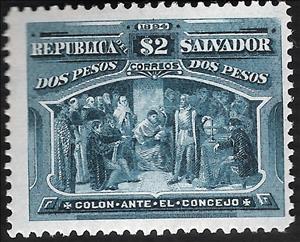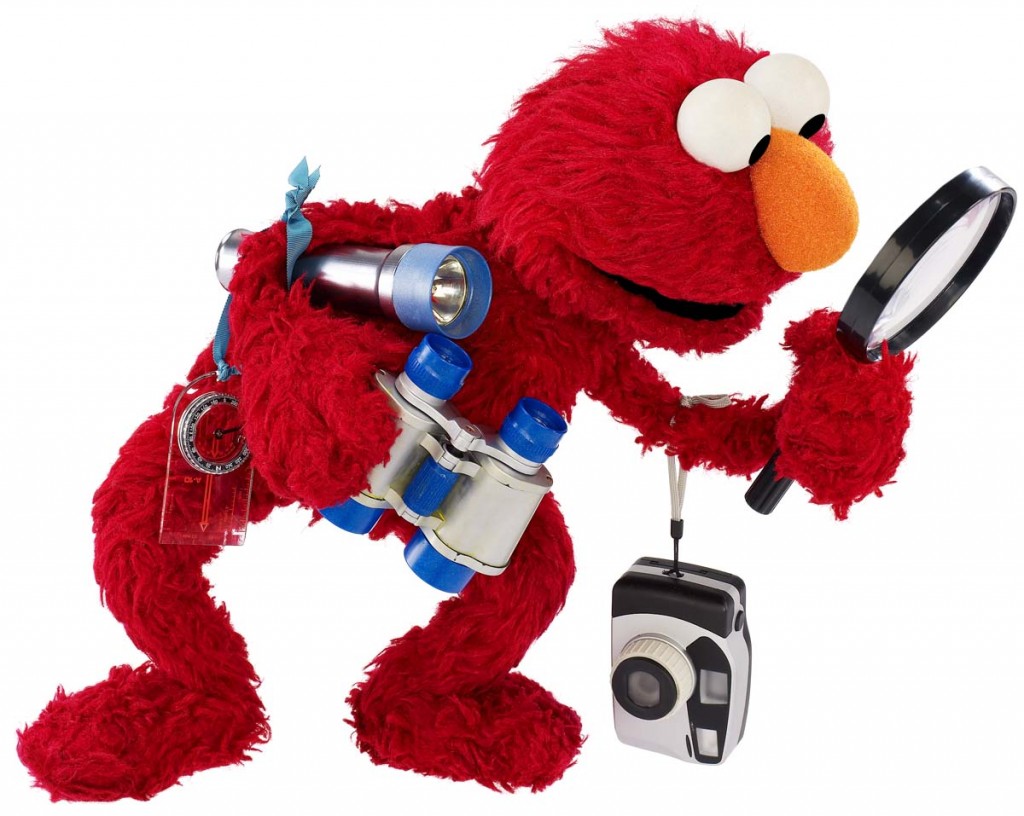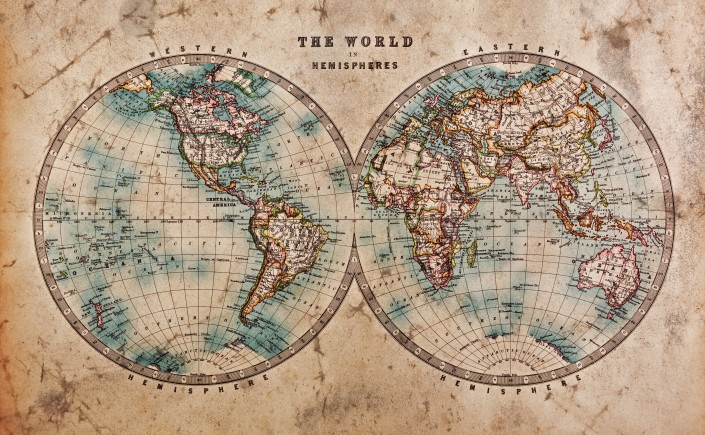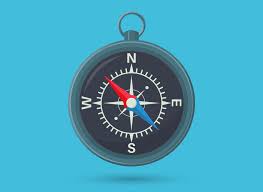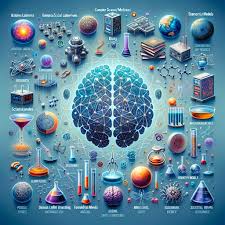Stamp: Columbus before Council of Salamanca (El Salvador 1894)
Columbus before Council of Salamanca (El Salvador 1894)
01 January (El Salvador ) within release Columbus goes into circulation Stamp Columbus before Council of Salamanca face value 2 Salvadoran peso
| Stamp Columbus before Council of Salamanca in catalogues | |
|---|---|
| Michel: | Mi: SV 86 |
| Stamp Number: | Sn: SV 101 |
| Yvert et Tellier: | Yt: SV 88 |
| Stanley Gibbons: | Sg: SV 86 |
Stamp is square format.
Columbus defending the sphericity of the Earth before the Council of Salamanca. Probably not used postally.Also in the issue Columbus:
- Stamp - Columbus Protecting Indian Hostages face value 5;
- Stamp - Columbus Received by Ferdinand and Isabella face value 10;
- Stamp - Columbus before Council of Salamanca face value 2;
Stamp Columbus before Council of Salamanca it reflects the thematic directions:
Discovery is the act of detecting something new, or something previously unrecognized as meaningful. Concerning sciences and academic disciplines, discovery is the observation of new phenomena, new actions, or new events and providing new reasoning to explain the knowledge gathered through such observations with previously acquired knowledge from abstract thought and everyday experiences. A discovery may sometimes be based on earlier discoveries, collaborations, or ideas. Some discoveries represent a radical breakthrough in knowledge or technology.
Geography (from Ancient Greek γεωγραφία geōgraphía; combining gê 'Earth' and gráphō 'write') is the study of the lands, features, inhabitants, and phenomena of Earth. Geography is an all-encompassing discipline that seeks an understanding of the Earth and its human and natural complexities—not merely where objects are, but also how they have changed and come to be. While geography is specific to Earth, many concepts can be applied more broadly to other celestial bodies in the field of planetary science. Geography has been called "a bridge between natural science and social science disciplines
A navigator is the person on board a ship or aircraft responsible for its navigation. The navigator's primary responsibility is to be aware of ship or aircraft position at all times. Responsibilities include planning the journey, advising the ship's captain or aircraft commander of estimated timing to destinations while en route, and ensuring hazards are avoided. The navigator is in charge of maintaining the aircraft or ship's nautical charts, nautical publications, and navigational equipment, and they generally have responsibility for meteorological equipment and communications. With the advent of satellite navigation, the effort required to accurately determine one's position has decreased by orders of magnitude, so the entire field has experienced a revolutionary transition since the 1990s with traditional navigation tasks, like performing celestial navigation, being used less frequently. Using multiple independent position fix methods without solely relying on electronic systems subject to failure helps the navigator detect errors. Professional mariners are still proficient in traditional piloting and celestial navigation.
Science is a systematic discipline that builds and organises knowledge in the form of testable hypotheses and predictions about the universe.Modern science is typically divided into two or three major branches: the natural sciences (e.g., physics, chemistry, and biology), which study the physical world; and the behavioural sciences (e.g., economics, psychology, and sociology), which study individuals and societies.The formal sciences (e.g., logic, mathematics, and theoretical computer science), which study formal systems governed by axioms and rules, are sometimes described as being sciences as well; however, they are often regarded as a separate field because they rely on deductive reasoning instead of the scientific method or empirical evidence as their main methodology. Applied sciences are disciplines that use scientific knowledge for practical purposes, such as engineering and medicine
